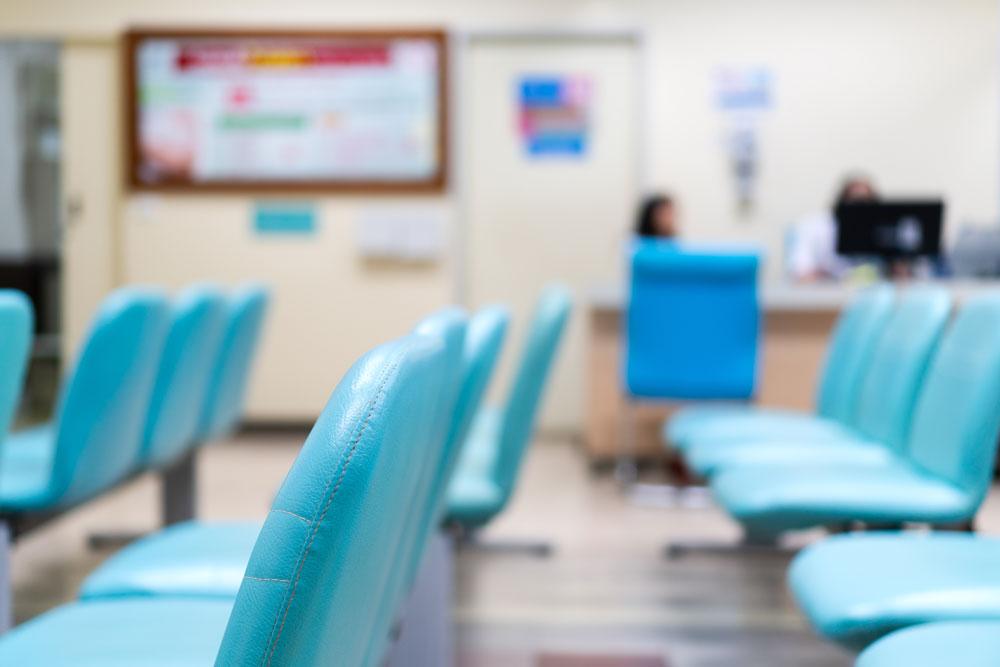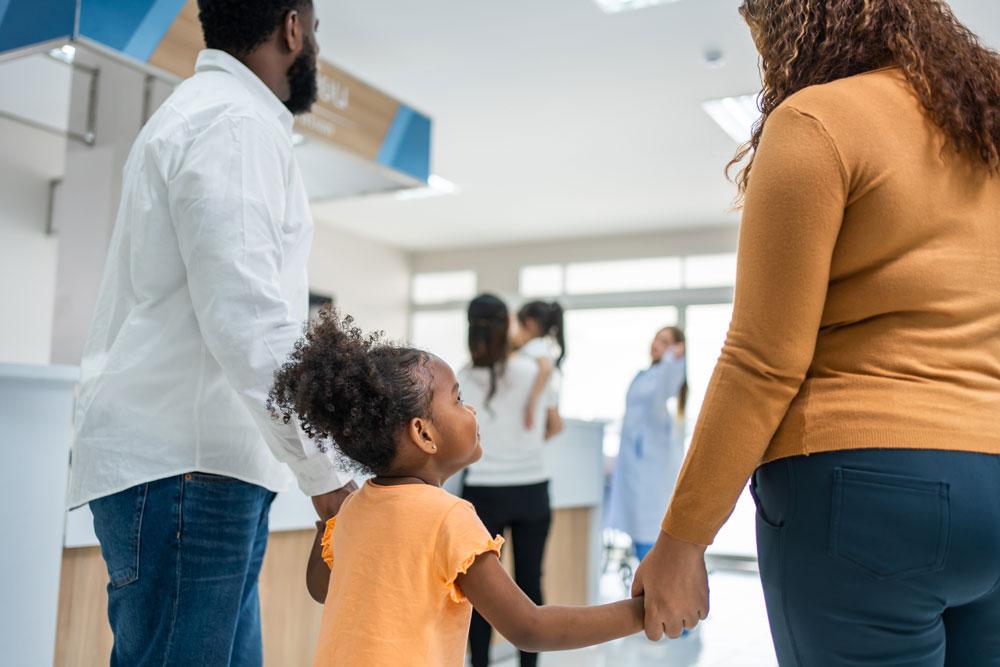Image credit: Medicinema.
Long hospital stays for children and young people are often daunting for patients and their guardians. What can be done to make their experience a little less stressful?
Hospitals can be lonely and daunting places, especially for young people. Painful treatments, time away from loved ones and uncertainty can impact anyone’s mental health.
Sometimes patients won’t have the energy to engage in anything too taxing but, if they are well enough, there are some small touches that can make a big difference to a young person’s stay in hospital.
From cinema rooms to animal therapy, we have highlighted charities and organisations working hard to ease stress and anxiety for young people spending time in healthcare settings.
Movies as medicine
Films provide an escape for many people. They can be a way to forget about your situation for a couple of hours.
It therefore makes sense that there is a demand for movies to be shown on large accessible screens in hospitals across the UK.
MediCinema is a charity that creates and operates cinemas inside hospitals, specially designed to accommodate beds, wheelchairs and medical equipment.
They show the latest films free of charge to patients and guardians at six cinemas in healthcare centres across the UK.
In a recent survey from the charity, they found that 95 per cent of patients, their guests and hospital staff agreed that going to a MediCinema screening made them feel better.
It also suggested that attending the screenings reduced pain (55 per cent), reduced isolation (94 per cent) and supported people’s mental health (91 per cent).
Colin Lawrence, CEO of MediCinema, said the cinemas can mean the difference between surviving and thriving for patients.
“If you’ve got a sick kid,” he said, “that impacts the whole family.” With MediCinema, the whole family is able to enjoy the film and forget about their hospital surroundings.
Lawrence added that one of the biggest impacts on younger patients is on their mental health, as it can help them forget the medical interventions they are living with.
“For patients in hospital for long-term care, the cinemas help to change the perception of healthcare environments,” the CEO said.
He added that another “important” benefit of the cinemas is their inclusivity, as children with disabilities or who are immuno-compromised are not always able to attend public cinemas.
Lawrence recalled a young boy in hospital who insisted on walking into the cinema, something that his parents had never seen him do.
According to Lawrence, some of the most popular recent screenings for younger patients are ‘Despicable Me 4’, ‘The Garfield Movie’ and ‘Inside Out 2’.
MediCinema also has shows specifically for staff, dubbed ‘Thank You’ screenings.
“I’m excited to say that we are in the process of building a new cinema in Alder Hey Children’s Hospital,” added Lawrence. The cinema will be converted from a lecture theatre and is expected to impact thousands of young people.
Paw-sitive visitors
Great Ormond Street Hospital (GOSH) said on their website that it is “well proven that animals can reduce the stress of being in hospital.” They have dog volunteers who visit the hospital regularly and go to most wards and departments.
“The main aim of our therapy dogs,” they said, “is to cheer up children and young people who might be missing their pet at home”.
The dogs also help with clinical work by encouraging patients to carry out their exercise programmes, often by joining in or acting as a reward for getting up and about.
The pups can visit patients before a test, operation, or procedure to reduce a patient’s anxiety and calm them down, as well as distract patients from any pain or discomfort by giving them something else to focus on.
Tina Jullings, chair and founder of Essex Therapy Dogs, said the feedback she gets from patients is “always positive.”
She said: “I founded Essex Therapy Dogs after spotting a need in the local area for therapy dogs to visit local hospitals, care homes, nursing homes etc after Covid. There were so many people who were struggling with mental health issues, and the charity I was with previously weren’t ready to restart visits.
“I arranged a dog walk with some of my friends and put forward the idea and they were very supportive. So we originally launched Essex Therapy Dogs on 21st November 2021 with just five members with 10 dogs. We now have over 300 members with around 280 dogs.”
The charity visits nine hospitals across Essex, including 22 wards at Broomfield Hospital and nine mental health units and hubs.
Jullings recalled a new patient in one of the mental health wards who had been non-communicative since his admittance.
“He hadn’t spoken a single word until one of our dogs walked through the door,” she said.
“Suddenly he broke out into a huge smile and rushed over to say hello and started to talk to the dog.”
The founder added: “All the staff became very emotional at the impact the dog had on that patient as they had been unable to break through his wall of silence.”
Jullings said she often get patients talking about how the dogs have made or brightened their day.
“For a few minutes someone is transported to a different place,” she said, “and the effects stay with them long after I’ve left.”
Jullings said some of the benefits she has seen included helping patients remain calm, decreasing aggressive behaviour, and encouraging communication.
A creative outlet
Another way to help young people manage their anxiety levels in hospitals is to engage in artistic activities. This can cover a whole range of events, from clay modelling workshops to spoken word poetry groups.
There are a whole host of charities and organisations that offer these kinds of activities.The National Portrait Gallery, for example, runs a programme working with London children’s hospitals to promote health and wellbeing through creative arts programming.
The partners they are working with currently are Chelsea and Westminster Hospital, Evelina London Children’s Hospital, Great Ormond Street Hospital for Children, Newham University Hospital and The Royal London Hospital.
Children taking part in the programme can create art inspired by ‘healthcare heroes’ like Dame Sally Davies (former Chief Medical Officer for England) and Mary Seacole.
They can participate in a toy hospital and a board game making workshop, where kids can even create their own board game inspired by the healthcare heroes.
Research conducted by the Centre for Cultural Value found that half of the studies referenced the idea that cultural experiences provided a ‘safe space’ for younger people, and they were proud of their creations.
As hospitals are often daunting and lonely spaces for children, it could be suggested that the impact of these creative sessions is even more pronounced than for children not in hospital.





